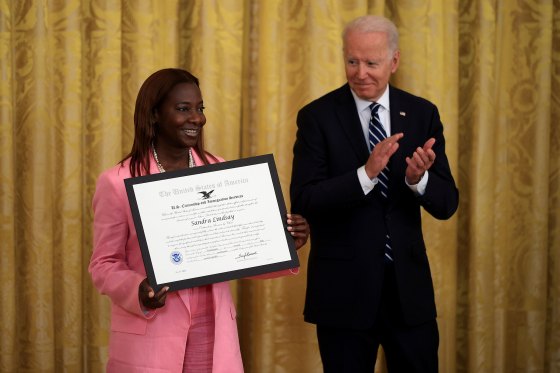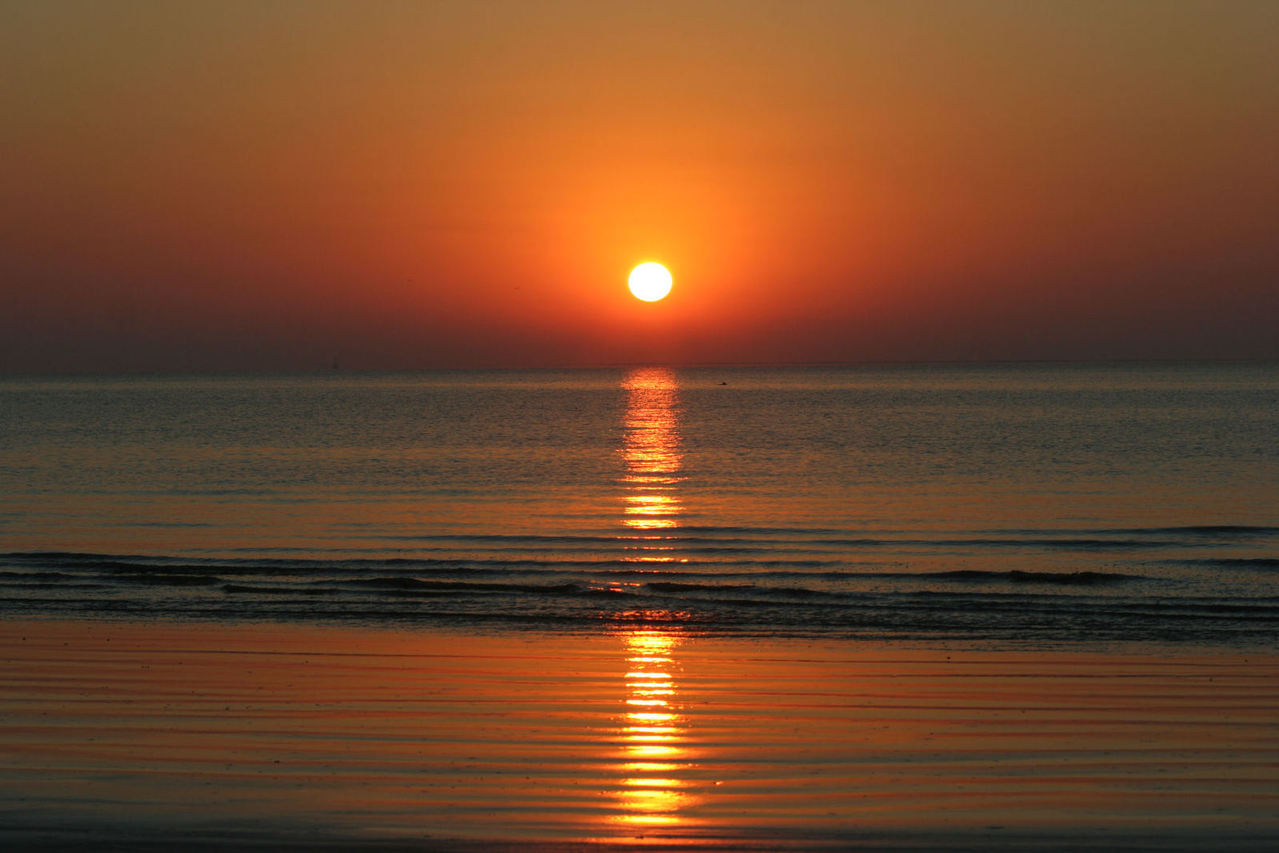How the First American Vaccinated Against COVID-19 Feels About the Pandemic a Year Later
Exactly one year ago, Sandra Lindsay became the first person in the U.S. to get vaccinated against COVID-19. As she sat before flashing cameras to receive her shot, the now 53-year-old critical care nurse in Long Island, New York, remembers feeling grateful for everyone who had a hand in developing the vaccine and making her shot possible. She also knew the shot would let her take the first step toward safely meeting her new grandson. “When I was able to take off my mask and to hug him, that little moment just meant the world to me,” she says.
[time-brightcove not-tgx=”true”]
Many others have followed; about 60% of eligible Americans are now fully vaccinated. Some of that is due to the hard work Lindsay and others have done advocating for vaccination. “Inaction is not an option, because [the pandemic] is not just going to magically go away,” she says. “It requires us—and it requires everybody—to do their part.”
In addition to treating COVID-19 patients at Northwell Health’s Long Island Jewish Medical Center, Lindsay has spent much of the last year promoting vaccination in television and in-person appearances in the U.S. and Jamaica, where she was born, hoping to encourage hesitant people to receive the shots. She’s well aware that the reason her televised vaccination was so powerful for many people wasn’t just that she was first, but also that she’s a Black immigrant woman working in health care. “Historically, Black people, for the sake of medicine and medical advancement, have endured a lot of harm and unethical practices,” she says. “My vaccination alone on national TV does not erase all of that harm and pain. For me, that represented just the beginning of, hopefully, a path to building trust between communities of color and the medical profession.” In July, she was honored at the White House with an “Outstanding American by Choice” award from President Joe Biden.

The past year has shown Lindsay how powerful such representation can be. People have stopped her on the street and in hospital hallways to ask for impromptu “consultations” about the vaccine or to express their gratitude that she got the shot publicly. One particularly meaningful moment came when she visited the Jamaican embassy; a woman approached her to say that watching Lindsay get vaccinated persuaded her entire family to change their minds and book their vaccine appointments.
Not every reaction has been positive. On social media, some people have called Lindsay “the devil” who would be responsible for adverse vaccine events. Others attacked her for publicly receiving the vaccine as a Black woman, calling her a “guinea pig” or falsely accusing her of being paid for the shot. After two years of fighting COVID-19 in the hospital and sharing information about the virus and vaccines, Lindsay says, she sometimes feels weary of the relentless flow of patients, a result of so many people remaining unvaccinated. Many nurses wonder, she says, “Why is this happening? Why aren’t we taking advantage of protecting ourselves? Why are we putting ourselves through this?”
But Lindsay says her positive interactions encourage her to keep fighting publicly and visibly for global health equity. “I think that it definitely inspired a lot of people, and for that I would do it over and over again,” says Lindsay.
View original article
Contributor: Tara Law

